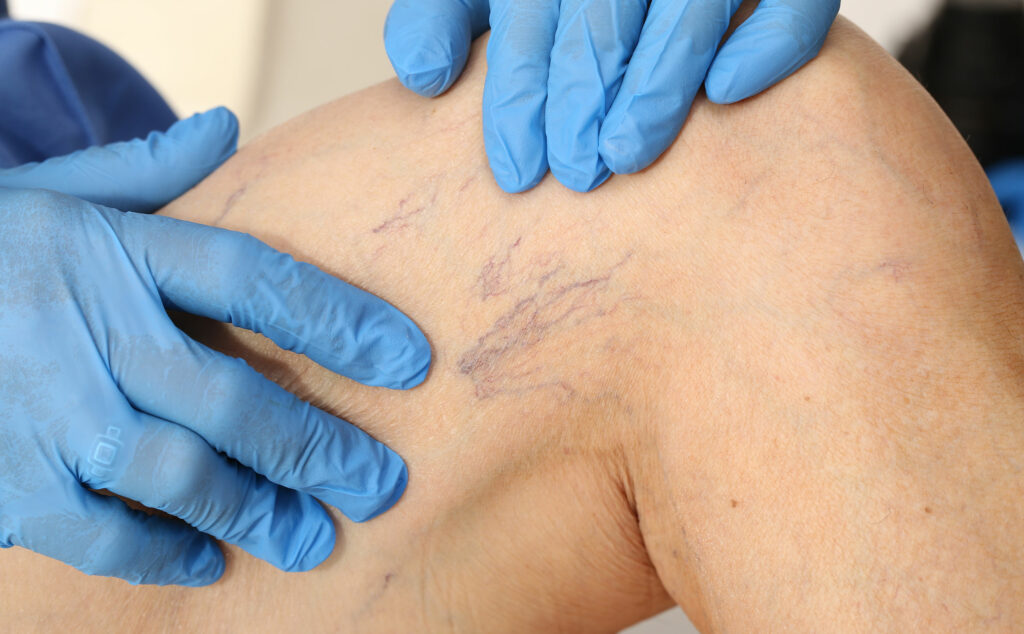Venous ulcers can occur when the veins in the legs don’t push blood back to the heart as they should. The blood stays in the veins by building up pressure. Without treatment, increased pressure and excess fluid in the affected area can cause an open sore.
Most venous ulcers occur in the leg, above the ankle. This type of wound can be slow to heal.
What are the causes and symptoms?
Veins in the legs have one-way valves that keep blood flowing toward the heart. When these valves weaken, blood can back up and pool in the legs, known as venous insufficiency.
The excess fluid causes blood pressure to build up in the legs. The increased pressure and fluid buildup prevent nutrients and oxygen from reaching the tissues, which causes cell death damaging the tissue, and a wound can appear.
When blood is contained in the lower leg veins, fluid and blood cells migrate to the skin and other tissues. This can lead to skin changes known as stasis dermatitis and is an early symptom of venous insufficiency.
Other early symptoms of venous ulcers may include:
- Swelling, heaviness, and cramps in the legs
- Skin that is hardened and dark red, purple, brown (this is a sign that the blood is holding back)
- Itching and tingling
The following symptoms may also occur:
- Superficial ulcer
- Irregularly shaped edges
- Surrounding skin may be shiny, tight, warm, or hot and discolored
- Legache
- If the ulcer becomes infected, it may have a bad odor and pus may drain from the wound
Which are the risk factors?
- Varicose veins
- History of blood clots in the legs (deep venous thrombosis)
- Blockage of the lymphatic vessels, which causes fluid buildup in the legs
- Leg swelling
- Old age
- Family history of venous insufficiency
- Obesity
- Pregnancy
- Smoking
- Sitting or standing for long periods
- Long bone fractures in the legs or other serious injuries, such as burns or muscle damage
Prevention
Certain lifestyle changes can help prevent venous ulcers.
Consider the following measures:
- Avoid smoking, smoking is bad for blood vessels
- If you have diabetes, keep your blood sugar levels under tight control
- Exercise regularly – staying active helps with blood circulation
- Eat healthy foods and get plenty of sleep at nigh
- Try to stay at an optimal weight
- Control your blood pressure and cholesterol levels
At the Cardiovascular Center of the ABC Medical Center we can give you specialized care. Contact us!
Fuentes:
With information from MedlinePlus


